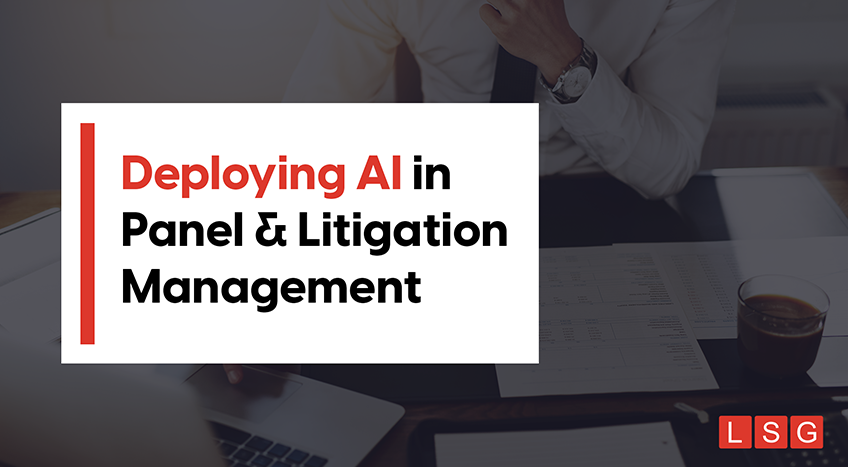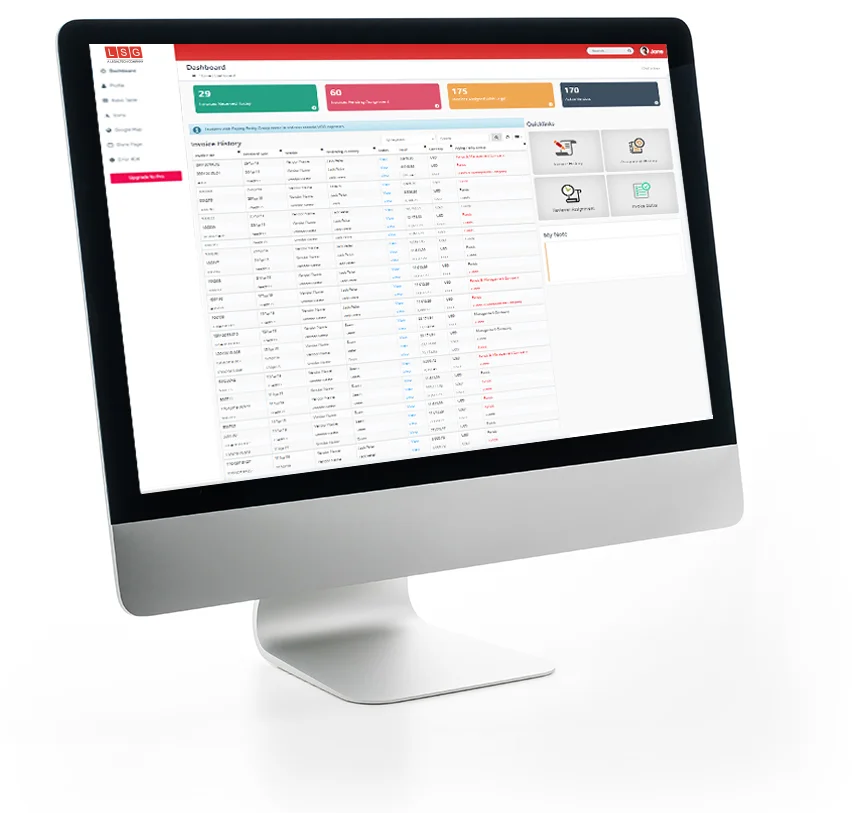Blog
Modernizing Panel and Litigation Management with AI
Published by Joakim Hjønnevåg on Nov 18, 2020

The Basics of Litigation Strategy
Corporate legal departments and insurance companies all have different standards of success when it comes to litigation management. Some analyze their cases by their effect on the bottom line; others prefer high settlement rates; others still take an altruistic approach and measure success relative to the fairness of the litigation process.
Regardless of these differences, all involved in litigation understand that best practice litigation management is synonymous with analytics and extensive financial insights. Fortunately, corporate legal departments and insurance companies alike can efficiently utilize the aforementioned with legal software.
It is increasingly important for insurers and corporate lawyers to prepare for the avalanche of litigation resulting from COVID-19. Currently, 1,295 cases are working their way through the U.S. court system, and it is expected that that number will continue to increase.
That being said, the implementation of a software program that can assist in litigation management, as well as overall enterprise management, can drastically improve the chances of insurers and corporate legal departments when they are inevitably faced with an unprecedented wave of litigation.
Litigation Management
Legal software platforms have been optimized to improve the efficiency and effectiveness of panel counsel management and litigation management. This is being achieved through the implementation of three primary features:
-
Life Cycle Tracking:
Life cycle tracking is particularly noteworthy as it benefits both the current case and future cases. The benefit to the current case lies in the availability of a clear overview and management of the entire process and its stakeholders. The data from this can then be stored and used in the future for predictive analytics and managing panel counsel based on previous performance or matter history.
-
Predictive Analytics:
An algorithm reportedly predicted the outcomes of 7,700 cases from the U.S. Supreme Court with 70% accuracy. However, recent findings via the ALAS Loss Prevention Journal have concluded that AI is best used in conjunction with human input.
This “centaur” model, as it is called, can be used in corporate legal departments and insurance companies to assist in the prediction of litigation outcomes and budgets. Corporate legal software with predictive analytics features can be used by in-house counsel and claims professionals to better decide their course of action on a matter. If the predicted total cost of a matter is slated to be high, they might settle early rather than spend invaluable time in litigation with an uncertain outcome.
-
Machine Learning and RPA:
Software with machine learning capabilities can be a huge help when it comes to decreasing time and money spent on sorting through case paperwork. In particular, invoice review supported by machine learning can be used to check invoices against billing guidelines.
Some software options, such as LSG, offer two versions of this: a hands-on approach where the AI checks invoices against guidelines and then trained lawyers review any flagged line items, or a non-attorney process where the flagged item review can be done in-house by the client user.
Panel Counsel Management
Machine learning capabilities and exhaustive data analytics can assist corporate legal departments and insurance company with the management of panel counsel. AI-enabled software can keep track of all the outside counsel that a corporate legal department or insurer brings onto its panel.
Once data about a specific firm has been entered into the software, it can then score that firm’s performance relative to the other panel counsel the company has previously used. Then, when the time comes to use panel counsel once again, users can easily figure out which firm is best fit to allocate that particular matter to based on analytics.
Furthermore, legal management software that is optimized for the entire enterprise can be used to improve communication between panel counsel and in-house counsel or claims professionals. This increase in effective communication stems from having all pertinent resources on one platform, along with collaborative features.
Enterprise Legal Management
Legal software is about more than just the litigation process. “Enterprise legal management” encompasses the entire matter, vendor, document as well as budget and rate management process.
Enterprise legal management software can be used for electronic document management and tracking, calendaring, budgeting and invoice tracking. Best practice ELM software also includes a total financial overview, data analytics, reporting and API integrations with other major software platforms spanning accounts payable and beyond.
Furthermore, ELM software typically also offers e-document storage, searching, bulk upload and downloads, user audit trails and document assignments. These features contribute to a clear vision of the entire document database for a corporate legal department or insurance company, which translates into more efficient matter management.
Overall Legal Management
A cloud-based software program can improve not only an organization’s litigation and panel counsel process, but it can also be used as a broad enterprise legal management tool that tracks all legal operations within a company - whether HR matters or upper management disputes.
ELM software can also be of use to legal departments and insurance companies seeking to benefit from its document and matter management capabilities. It can also be used to incentivize staff through intrinsic and extrinsic rewards if there is built-in gamification.
All in all, artificial intelligence - specifically machine learning - is a great place to start for corporate legal departments and insurance companies seeking to improve their litigation and panel counsel management processes.



